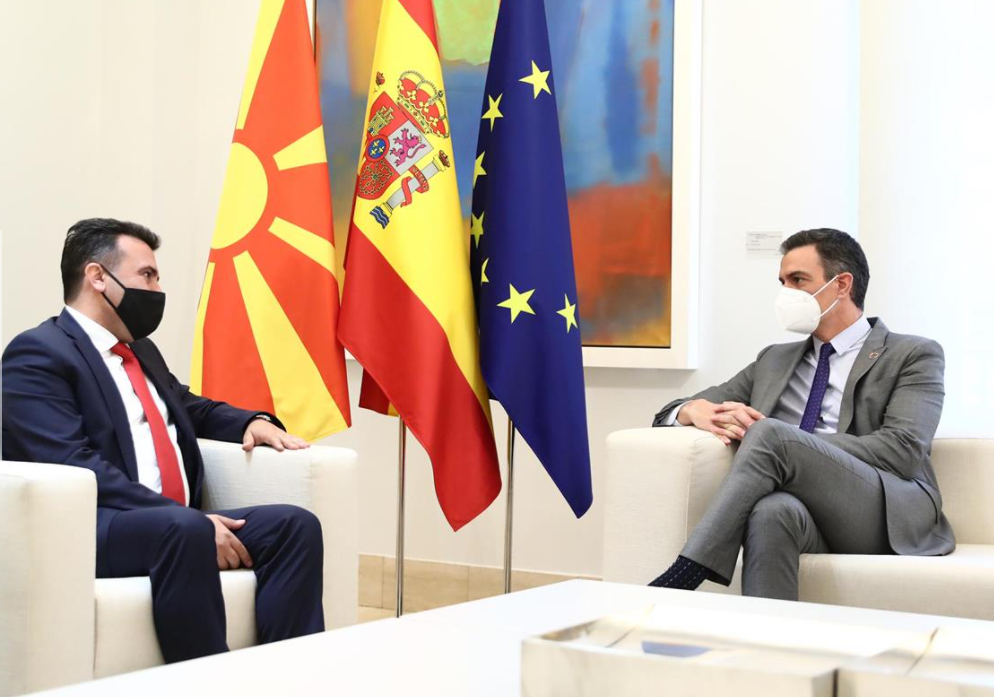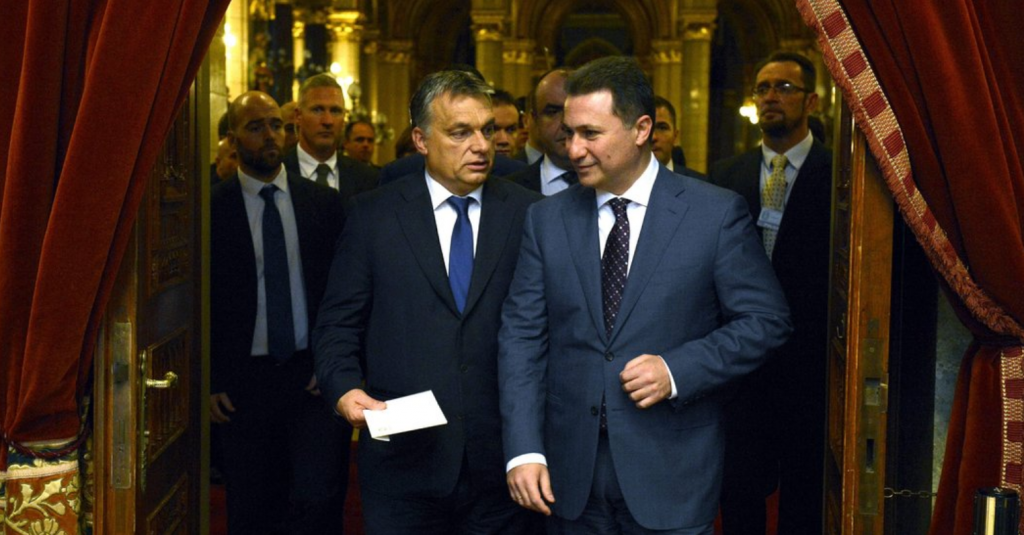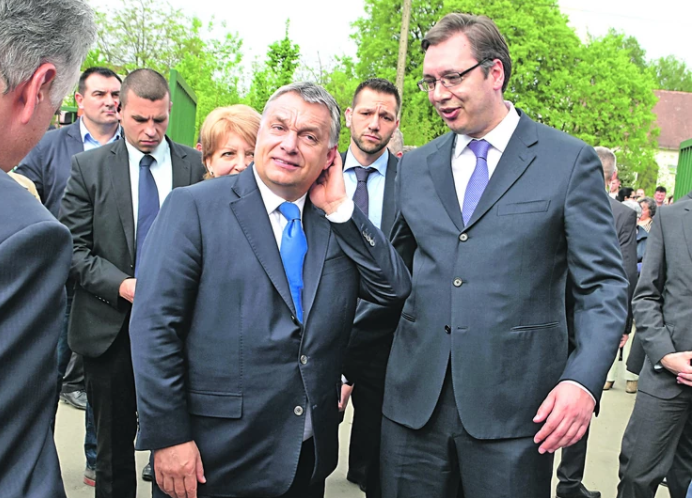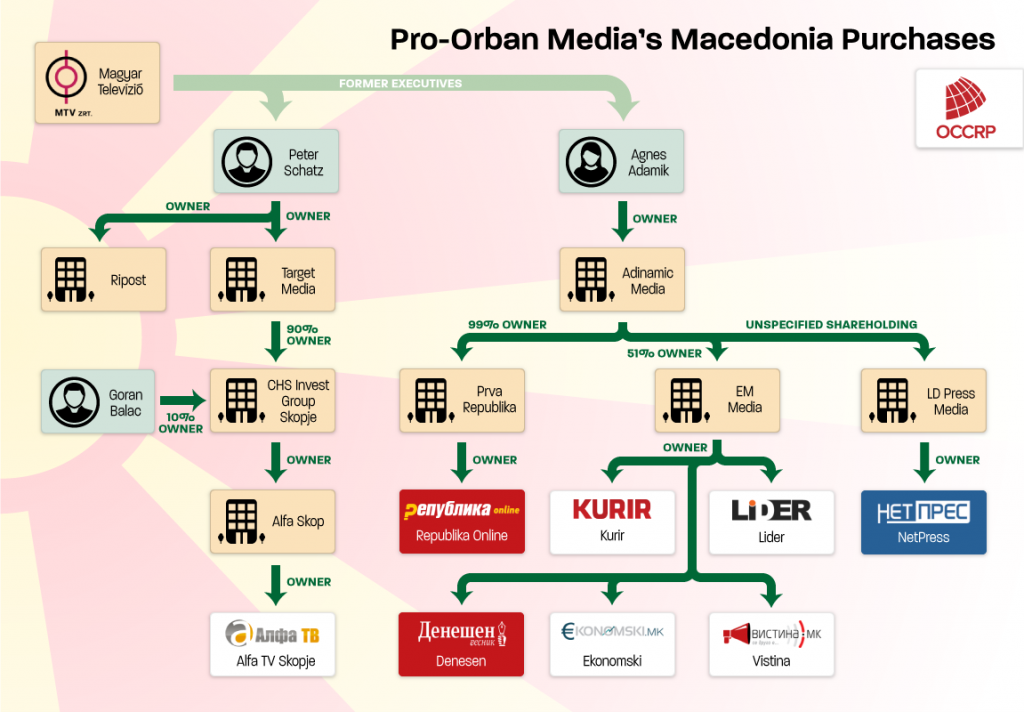OSF Berlin office chief Goran Buldioski talks about the EU Commission’s proposal to exclude North Macedonia from accession talks, Viktor Orbán’s growing influence in the Balkans and why the independence of the media will be of utmost importance for the upcoming years in Europe.
Host: Zoltán Kész
The news came as a shock. EU Neighbourhood and Enlargement commissioner Olivér Várhelyi’s proposal to exclude North Macedonia from further accession talks has surprised politicians and experts, and sparked criticism across the continent. Despite North Macedonia fulfilling the formal obligations required to start the negotiations process with the EU, and the efforts of its government to respect and practice democratic values, the long-awaited moment to start accession talks was postponed.
Austria was one of the first EU member states to protest against the proposal and oppose the ‘decoupling’ of the Albania-North Macedonia EU path, with the country’s foreign minister Alexander Schallenberg calling the move “absurd”.
Goran Buldioski, director of the OSF Berlin office and a native Macedonian, criticizes the decision and sees it as a “protracted disaster” for the Western Balkans and the European Union. “It sends a message that if you are democratic and fulfill all the necessary criteria, still you are subject to the politics of any member state,” he said with a reference to the Hungarian government, responsible for the nomination of EU Commissioner Várhelyi.

The EU decision could push non-EU Balkan countries in the hands of Russia and China and make them act like Serbian President Aleksandar Vučić does: a role model for “non-aligned forces”. Vučić, trying to engage Russia, China and the EU simultaneously, “almost stopped” Serbia’s access procession to the EU.
“If this is happening to North Macedonia, I don’t even imagine what will happen if once Bosnia and Herzegovina or Kosovo start their accession to the EU,” he added.
Budapest-Skopje connection
Connections between Skopje and Budapest have suffered several setbacks in recent years. Hungary’s government, led by prime minister Viktor Orbán, granted asylum to former Macedonian Prime Minister Nikola Gruevski. The past head of government, sentenced to two years in prison on corruption charges, fled to Hungary in November 2018.

Although in Hungary for almost three years, Gruevski is still one of the leading figures of VMRO-DPMNE, the largest opposition party.
“His party has a lot to do with the non-constructive role in getting the country closer to the EU accession,” Mr Buldioski explained.
Várhelyi as Orbán’s team player?
Olivér Várhelyi assumed his office in December 2019, but the OSF director questions his commitment of being a “team player” of the European Commission. “The Commissioner’s public behavior is causing further inflictions and increasing the division,” he stated.
Mr Várhelyi’s behavior “goes against” the history of the executive branch of the European Union, well known for its role as a bridge maker.
“This is not what I would expect to be the role and mandate of an EU Commissioner for Enlargement”, Mr Buldioski criticized.
Hungary’s eye on the Balkans
In recent years, Hungary has been trying to earn a high-profile status in the Balkans. This shouldn’t come as a surprise but seen as a “natural choice” for Hungarian foreign policy. Once non-EU countries of the region join the EU, they could potentially become allies of the Hungarian government.

Photo credit: N. Mihajlovic, RAS Srbija
Regarding the Hungarian economy, the Balkans also offer major potentials. However, the size of Hungary’s economy doesn’t play a distinguished role in Europe, it is still large for Western Balkans standards. “This could be a part of an investment vehicle, especially if these are done with special privileges and guarantees of not so democratic leaders in the region.”
Hungary’s foreign policy on Russia and China has significantly differed from that of the other Visegrád countries since Viktor Orbán took over the power in 2010. However, Budapest can hardly convince the Czech, Slovakian and Polish leaders to follow suit.
Therefore, it should not come as a surprise that Hungary is looking towards the Balkans in order to create alliances and have an impact. “The Western Balkans offer that possibility. Whether it’s good for the region? I’m not sure,” Mr Buldioski argued.
“The region needs more democracy, rule of law and predictable rules of playing the game in the areas of business, politics, and social life. Hungary is not the best example of all that, if not the worst in the EU,” he continued.
Orbán’s media influence
In recent years, media investments by pro-Orbán business groups, a major pillar of spreading Hungarian influence in the region, have sounded the alarm across Southeast Europe.
Mr Buldioski is also aware of the “problem” and reminds us of the poor state of press freedom under Viktor Orbán. “What happened with the media in Hungary, under the watch of the EU, is a shame for all of us democratic Europeans.”

Slovenia is one of the countries that has seen a surge of investment by media businesses close to the Hungarian prime minister. “Janez Janša took everything from Orbán’s book,” he said with a reference to Slovenia’s head of government. The “purge” on progressives in civil society, media and academia was supported by those interests.
Similar business moves took place in North Macedonia, where a small media conglomerate, owned by Hungarian capital belonging to the Orbán circle, started to operate.
In both countries, the Orbán media interests are far from being dominant these days. However, this could change over time. If these groups are backed up by forces that could get “more than the simple majority”, it would be a game changer.
Independent media of utmost importance
The independence of the media, both in and outside the European Union, has been neglected over time. “The business of media has been shaken by the fact that oligarchs can own media outlets as a transactional cause that they are eager to pay in order to have their other interests protected”.
Though it’s hard to compete with market mechanisms against such business moves, the decade-long negligence of democratic institutions marks one of the utmost priorities for the coming years in the European space.
“A special scheme is needed where independent media will be supported and will be able to provide unbiased info both inside and outside the EU.”
Cover photo credit: Arsod, “EU Commissioner Oliver Varhelyi interview with MRT / Интервју на еврокомесарот Оливер Вархеји за МРТ”, Youtube

Goran Buldioski is director of the Open Society Foundations’ Berlin office and the Open Society Initiative for Europe. Before joining the Open Society Foundations, he worked for the Council of Europe, the Macedonian Center for International Cooperation, and the National Youth Council of Macedonia. Twitter: @gbuldioski
Photo credit: Open Society Foundations



